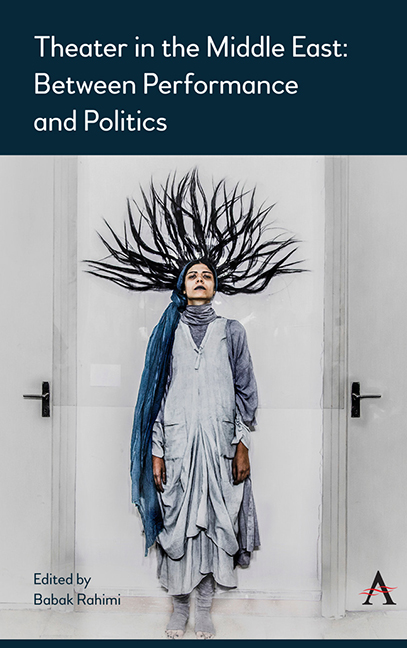Chapter 1 - Teaching Middle Eastern Theater: Creation, Challenges and Rewards
Published online by Cambridge University Press: 04 February 2022
Summary
During the 2015–16 academic year at the University of Oregon, I created a class titled “Middle Eastern Theater” as part of the Department of Theatre Arts and the Rutherford Initiative in Middle East Studies, a three-year effort aimed at creating an undergraduate minor in Middle East studies. Having created and taught “Arab American Theater,” an undergraduate/graduate class, years prior, I had a template for how I would approach this topic. Teaching Middle Eastern theater is a much more complex and complicated undertaking because, unlike Arab American theater, Middle Eastern theater is composed of a much more heterogeneous and wide-ranging purview of cultures, ethnicities, languages, political affiliations, nation-states and conflicts. I was immediately confronted with several vital questions: Which countries would I include? Which peoples would be covered, and why? Are plays from the various regions that comprise the Middle East available in English translation? How would I approach sensitive topics such as the Armenian Genocide, the Palestinian-Israeli conflict and the Sunni/Shia divide? How would I approach the inclusion/ exclusion of nations and cultures that are sometimes regarded as Middle Eastern and sometimes not? How would I present so much history and material within a 10-week term? By garnering a grant allowing me to host renowned Lebanese professor, actress and director Sahar Assaf from the American University of Beirut, and with the burgeoning amount of material of translated dramatic plays and essays, this class became not only possible but one that was a success.
I decided to focus on modern and contemporary drama, rather than attempting to discuss the premodern performance traditions. This was done primarily because modern and contemporary dramas are both more accessible in translation, but also because they are easier to comprehend for a contemporary theater student versed in plays written in the twentieth and twenty-first centuries. Also, this allowed for a richer discussion of Middle Eastern nation-state formation and history in relation to the plays chosen for the course.
What Exactly Is the Middle East?
The first question that arose when considering this course is, “what, exactly, is the Middle East?” The Middle East has many definitions.
- Type
- Chapter
- Information
- Theater in the Middle EastBetween Performance and Politics, pp. 23 - 42Publisher: Anthem PressPrint publication year: 2020



